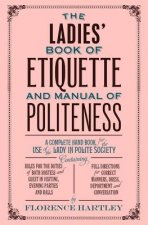
Kód: 05027239
Lithuanian Yeshivas of the Nineteenth Century
Autor Shaul Stampfer
One of the key ways in which the traditional Jewish world of eastern Europe responded to the challenges of modernity in the nineteenth century was to change the system for educating young men so as to reinforce time-honoured, cons ... celý popis
- Jazyk:
 Angličtina
Angličtina - Väzba: Brožovaná
- Počet strán: 432
Nakladateľ: The Littman Library of Jewish Civilization, 2014
- Viac informácií o knihe

45.68 €

Skladom u dodávateľa v malom množstve
Odosielame za 10 - 14 dní
Potrebujete viac kusov?Ak máte záujem o viac kusov, preverte, prosím, najprv dostupnosť titulu na našej zákazníckej podpore.
Pridať medzi želanie
Mohlo by sa vám tiež páčiť
-

CCNP and CCIE Enterprise Core Encor 350-401 Official Cert Guide
70.49 € -

The Mezzotint: History and Technique
73.41 € -2 % -

2024 Instant Happy Notes Boxed Calendar
11.08 € -13 % -

Leviathan (Royal Collector's Edition) (Case Laminate Hardcover with Jacket)
59.29 € -

Saga: Compendium One
49.41 € -18 % -

The Interpretation of Financial Statements
27.62 € -22 % -

Decameron
29.04 € -6 % -

History of the Polish-Lithuanian Commonwealth
190.81 € -

Great Shift
22.08 € -

Qutlugh Terkan Khatun of Kirman
19.76 € -1 % -

Runaways
11.69 € -

Life After Trauma
20.67 € -2 % -

Leviathan
9.47 € -14 % -

Quiet
12.80 € -18 %
Darujte túto knihu ešte dnes
- Objednajte knihu a vyberte Zaslať ako darček.
- Obratom obdržíte darovací poukaz na knihu, ktorý môžete ihneď odovzdať obdarovanému.
- Knihu zašleme na adresu obdarovaného, o nič sa nestaráte.
Viac informácií o knihe Lithuanian Yeshivas of the Nineteenth Century
Nákupom získate 115 bodov
 Anotácia knihy
Anotácia knihy
One of the key ways in which the traditional Jewish world of eastern Europe responded to the challenges of modernity in the nineteenth century was to change the system for educating young men so as to reinforce time-honoured, conservative values. The yeshivas established at that time in Lithuania became models for an educational system that has persisted to this day, transmitting the talmudic underpinnings of the traditional Jewish way of life. To understand how that system works, one needs to go back to the institutions they are patterned on: why they were established, how they were organized, and how they operated. This is the first properly documented, systematic study of the Lithuanian yeshiva as it existed from 1802 to 1914. It is based on the judicious use of contemporary sources - documents, articles in the press, and memoirs - with a view to presenting the yeshiva in its social and cultural context. Three key institutions are considered. Pride of place in the first part of the book is given to the yeshiva of Volozhin, which was founded in 1802 according to an entirely new concept - total independence from the local community - and was in that sense the model for everything that followed. Chapters in the second part focus on the yeshiva of Slobodka, famed for introducing the study of musar (ethics); the yeshiva of Telz, with its structural and organizational innovations; and the kollel system, introduced so that married men could continue their yeshiva education. Topics covered include the leadership and changes in leadership; management and administration; the yeshiva as a place of study; and daily life. This English edition is based on the second Hebrew edition, which was revised to include information that became available with the opening of archives in eastern Europe after the fall of communism.
 Parametre knihy
Parametre knihy
Zaradenie knihy Knihy po anglicky Society & social sciences Society & culture: general Social groups
45.68 €
- Celý názov: Lithuanian Yeshivas of the Nineteenth Century
- Autor: Shaul Stampfer
- Jazyk:
 Angličtina
Angličtina - Väzba: Brožovaná
- Počet strán: 432
- EAN: 9781906764609
- ID: 05027239
- Nakladateľ: The Littman Library of Jewish Civilization
- Hmotnosť: 680 g
- Rozmery: 234 × 163 × 36 mm
- Dátum vydania: 31. July 2014
Obľúbené z iného súdka
-

Women Who Run with the Wolves
11.69 € -

Freedom Writers Diary
15.42 € -10 % -

Think Like a Monk
14.21 € -10 % -

Orientalism
11.49 € -19 % -

How Europe Underdeveloped Africa
22.88 € -

Desert Flower
13.10 € -1 % -

Why Does He Do That?
16.43 € -14 % -

Letters to a Young Muslim
12.09 € -23 % -

Eros and Mysteries of Love
18.04 € -13 % -

Life After Darkness
21.37 € -20 % -

Puer Tea
44.57 € -

Womanhood
21.67 € -23 % -

Complete Book of Pilates for Men
19.05 € -20 % -

JFK - 9/11
33.47 € -

Gypsy Identities 1500-2000
69.08 € -

Servitors of Empire
20.87 € -

Sword of No-sword
27.22 € -5 % -

Colloquial Yiddish
67.06 € -

Gerotranscendence
145.63 € -

Northwest Coast Indian Art
30.25 € -2 % -

Qur'an
32.37 € -23 % -

When God Was A Woman
19.66 € -2 % -

The Mastery of Love
12.80 € -15 % -

Vintage Menswear
16.53 € -9 % -

Who Cooked the Last Supper?
19.86 € -5 % -

Women Who Run With The Wolves
15.32 € -20 % -

The Way of Men
14.11 € -17 % -

The Autobiography of Malcolm X
10.58 € -6 % -

Second Sex
14.61 € -8 % -

Goddesses in Everywoman
12.09 € -23 % -

Talking with Female Serial Killers - A chilling study of the most evil women in the world
10.98 € -23 % -

Intellectuals and Society
22.08 € -21 % -

Women in the Qur'an
20.67 € -2 % -

Erotic Bondage Book
15.22 € -15 % -

Zami
10.98 € -23 % -

Nine Years among the Indians, 1870-1879
30.05 € -

Dark Emu
16.33 € -23 % -

Childhood and Society
16.73 € -16 % -

Happy City
12.09 € -23 % -

The Male Nude
18.45 € -8 % -

The Bell Curve
18.45 € -23 % -

We Should All Be Feminists
7.86 € -22 % -

Empire of the Summer Moon
14.21 € -23 % -

Radium Girls
10.98 € -23 % -

Dance of Anger
10.98 € -23 % -

Beauty Myth
14.21 € -23 % -

Muqaddimah
21.88 € -15 % -

TROUBLEMAKER
15.93 € -17 % -

Ladies' Book of Etiquette and Manual of Politeness
13.40 € -17 %
Osobný odber Bratislava a 2642 dalších
Copyright ©2008-24 najlacnejsie-knihy.sk Všetky práva vyhradenéSúkromieCookies


 21 miliónov titulov
21 miliónov titulov Vrátenie do mesiaca
Vrátenie do mesiaca 02/210 210 99 (8-15.30h)
02/210 210 99 (8-15.30h)